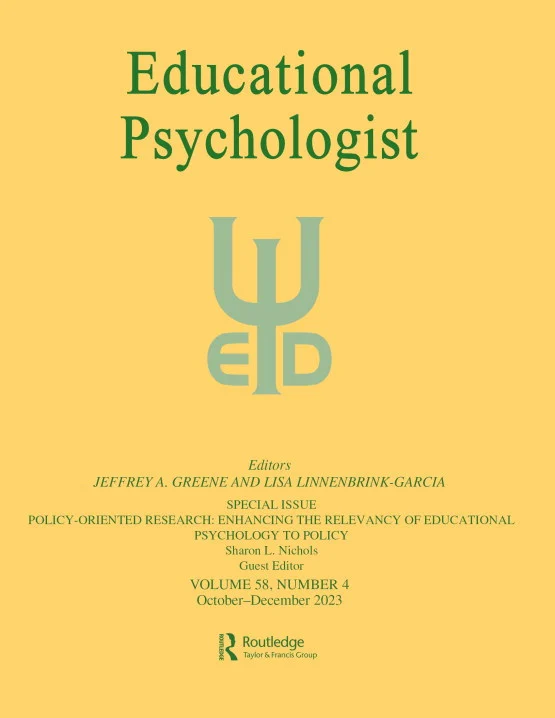“对未来的反馈”:在反馈研究中推进动机和情感的观点
IF 11.4
1区 心理学
Q1 EDUCATION & EDUCATIONAL RESEARCH
引用次数: 10
摘要
当学习者收到反馈时,重要的动机和情感过程被触发,这些过程控制着学习者是否以及如何重新参与学习活动,并成功地根据反馈所建议的内容进行调整。我们的目标是强调动机和情感过程如何影响反馈的有效性,以及我们对反馈过程的理论理解如何依赖于对反馈的情感前体、伴随物和后果的欣赏。为了查询文献,询问学术动机和情感理论,并确定与反馈相关的核心动机和情感因素,我们使用了一个五问题框架:反馈对我意味着什么?我对反馈有何感想?我能从反馈中得到改进吗?我想要从反馈中得到改进吗?在处理反馈时,我是否得到了他人的支持?对经验基础和理论驱动的解释的概念回顾伴随着每个问题,以告知实践和研究。本文章由计算机程序翻译,如有差异,请以英文原文为准。
“Feedback to the future”: Advancing motivational and emotional perspectives in feedback research
Abstract When a learner receives feedback, important motivational and emotional processes are triggered that control whether and how the learner reengages in a learning activity and successfully adjusts in response to what the feedback suggests. We aim to highlight how motivation and emotion processes influence feedback effectiveness, and how our theoretical understanding of the feedback process depends on appreciating the affective precursors, concomitants, and consequences of feedback. To query the literature, interrogate theories of academic motivation and emotion, and identify central motivational and emotional factors associated with feedback, we use a five-question framework: What does the feedback mean to me? How do I feel about the feedback? Can I improve from the feedback? Do I want to improve from the feedback? Am I supported by others or by the context in dealing with feedback? A conceptual review of empirically grounded and theory-driven interpretations accompanies each question to inform practice and research.
求助全文
通过发布文献求助,成功后即可免费获取论文全文。
去求助
来源期刊

Educational Psychologist
Multiple-
CiteScore
19.10
自引率
3.40%
发文量
16
期刊介绍:
The Educational Psychologist is a scholarly journal dedicated to exploring the psychology of learning and instruction. Articles in this journal encompass a diverse range of perspectives, from examining psychological mechanisms to exploring social and societal phenomena related to learning and instruction. The journal publishes theoretical and conceptual articles, as well as reviews and meta-analyses, that significantly contribute to theory or advance the methods used to explore educational psychology. Emphasizing innovation and advancing understanding, the journal does not publish articles solely reporting the methods and results of empirical studies; instead, all submissions, including reviews and meta-analyses, must offer clear implications for advancing theory. In addition to regular articles, the journal features special issues that delve into important themes in educational psychology, along with focal articles accompanied by peer commentary.
 求助内容:
求助内容: 应助结果提醒方式:
应助结果提醒方式:


